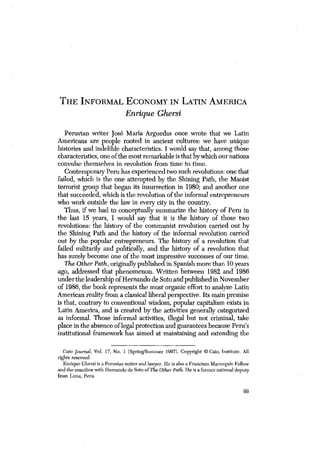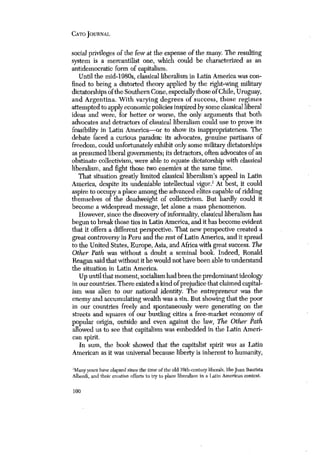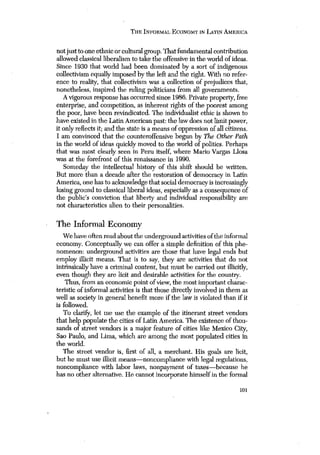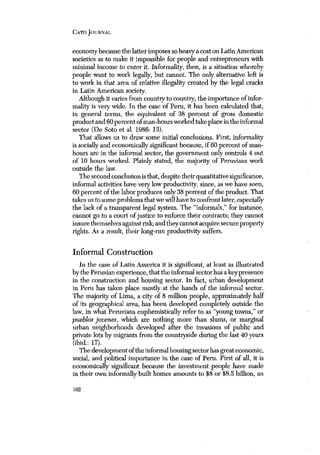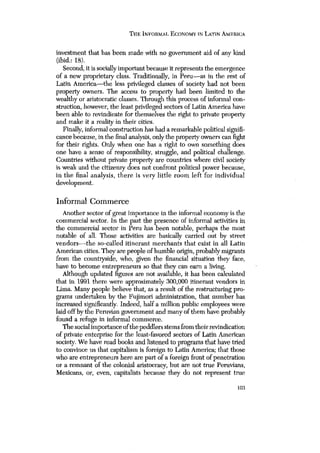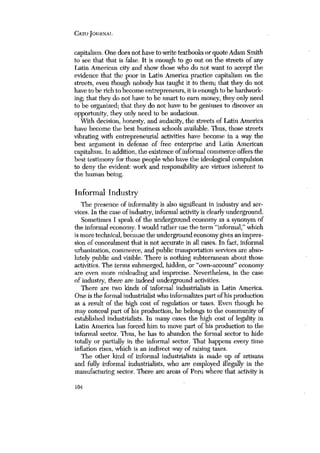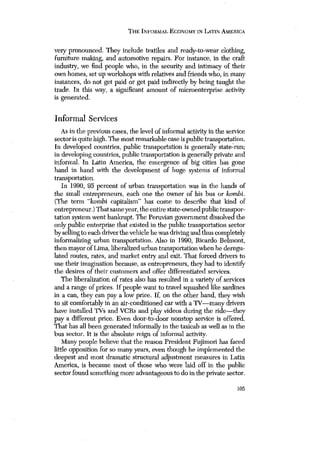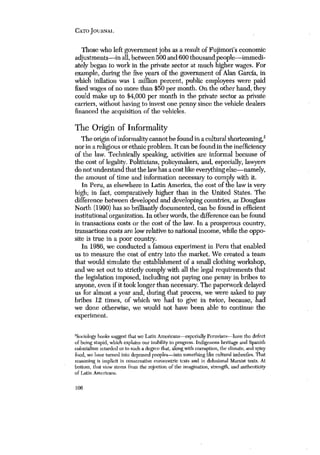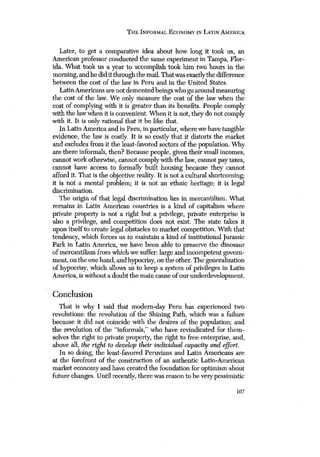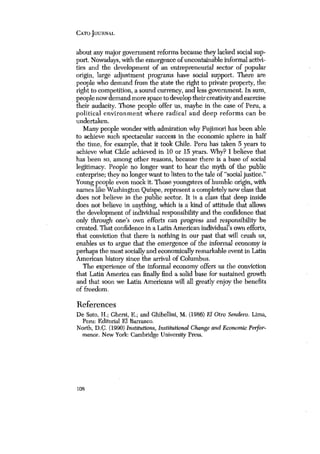This document discusses the informal economy in Latin America. It describes two revolutions that have occurred in Peru - a failed communist revolution led by Shining Path, and a successful informal revolution carried out by popular entrepreneurs working outside the law. The Other Path, a seminal book from 1986, analyzed the reality in Latin America from a classical liberal perspective and showed that popular capitalism exists through informal activities of the poor. It challenged the prevailing ideology of socialism and collectivism, showing that capitalism is embedded in the Latin American spirit. This shifted the debate and allowed classical liberal ideas to gain prominence in the world of ideas.
